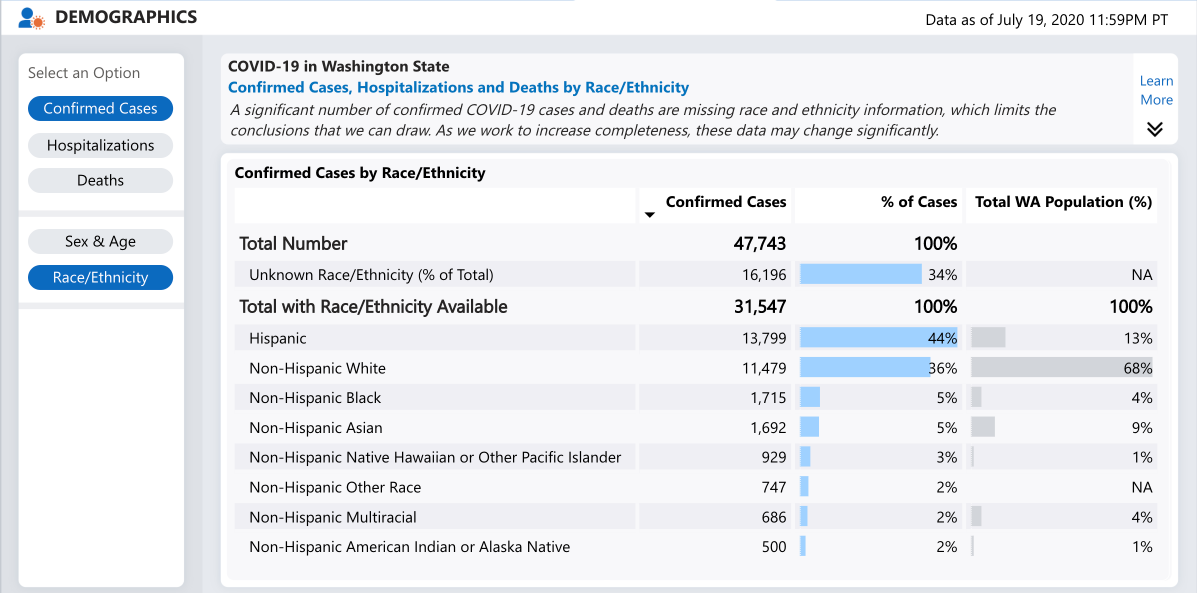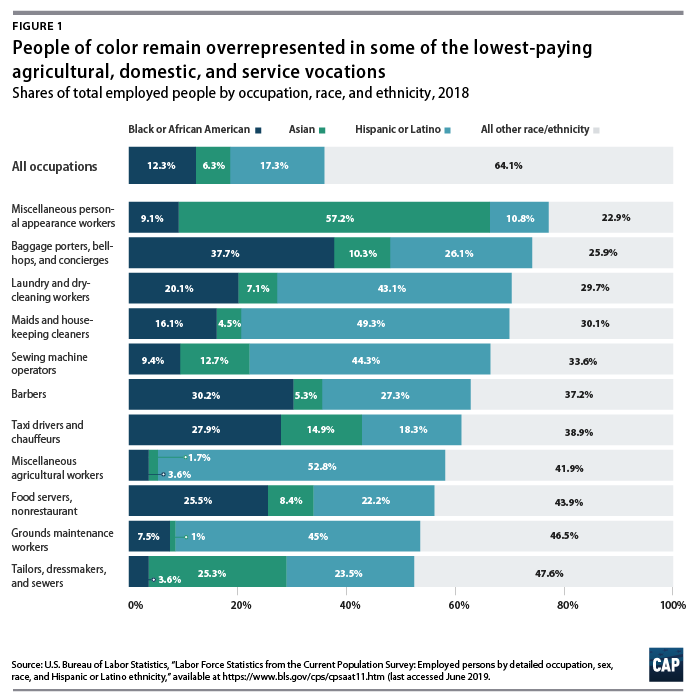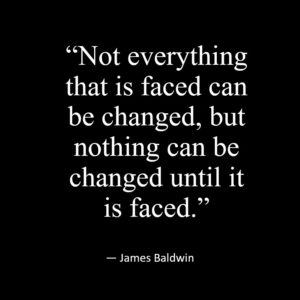I’ve heard the phrase, “We’re all in this together.” many times over the last few months.
Without a doubt, this time has been difficult for all Americans. Yet, the circumstances we are facing have made it glaringly obvious that race has a dramatic impact on our life experiences.
As a steward of local relief funds, the Community Foundation has seen how the pandemic is affecting southwest Washington communities. For a virus that doesn’t discriminate, it has been disturbing to see large racial disparities emerge.
A Threat to Public Health
You’ve likely seen the national data showing that people of color and other marginalized groups are bearing greater health risks.
I share national statistics because they are telling of the larger picture, but also because our state-level health data is far from complete. A quarter of Washington state COVID-19 cases lack race or ethnicity data. Even with these gaps, we can see that Latino communities are disproportionately impacted. Latinos account for 44 percent of all cases and just 13 percent of our state population.

These figures are largely a product of our systems and institutions rather than individual choices, because being Latino does not make a person prone to COVID-19. Being Latino in America does.
Experts are pointing to social and economic factors. For example, people of color—and especially Latino people—are more likely to work essential or frontline jobs across many fields. Social distancing protocols are difficult to maintain in many of these roles, making them especially hazardous.
To make matters worse, these jobs usually lack health insurance, which is one reason why Latino folks represent an increasingly disproportionate share of the state’s uninsured population. Tack on language barriers and a lack of culturally responsive care, and disparities become even more pronounced.
This pandemic is a stark example of how these disparities impact all of us first-hand. Person by person, this virus has traveled across the world, reminding us of the relationship between personal health and community health.
A Threat to Our Economy
Economic burdens due to COVID-19 are similarly lopsided. Across the state, Pacific Islander and African American communities are most strained. Southwest Washington reflects this trend to a lesser degree. This is also partly representative of the jobs they hold, which are in many ways rooted in economic and public policy decisions.
Today, people of color are likely to hold occupations that provide fewer benefits, lower wages and limited protections. Many of these workers manage multiple jobs and still lack the ability to build enough savings for minor personal emergencies, let alone a global pandemic.

These jobs also provide the least security. As a result, many of these workers make up the bulk of job losses in Washington, especially those in the service sector. Basically, those with the least cushion and fewest options are being hit hardest.
The data should not be surprising. Historically, recessions hit communities of color harder and recovery tends to reach them last. All of this is deeply connected to the fact that people of color have always faced barriers to wealth and opportunity due to discrimination and biases in the housing and financial sectors.
Like health, we must view economic prosperity from a collective perspective. When more of our neighbors can build wealth, our local economy benefits. Shared prosperity produces talent, innovation, participation and potential that we can’t imagine today. Most importantly, it allows everyone to find agency, opportunity and hope.
A Threat to Philanthropy
At the outset, I mentioned that race has a dramatic impact on one’s life. To be more exact, it is racism—not race—that shapes our experiences.
While we have made advances over the last 50 years, racism has not disappeared. In fact, we have yet to address some of the more covert and concerning historic wrongs. Bias and discrimination continue to infect the systems, institutions, policies and practices that shape our lives. Racial inequities are the result, and the current health crisis has magnified many of them.
From public health and employment to education and criminal justice. Pick an indicator: In every case, the outcomes almost always leave people of color and other marginalized groups at a deficit, even when compared to their socio-economic peers.
In this way, systemic racism is a headwind to philanthropy, working against nearly every cause our fundholders care about. This is especially true within the Community Foundation’s focus area of intergenerational poverty.
Our mission, let alone measurable impact on any indicator, is impossible without first acknowledging the ways that systemic racism is working against us—putting certain people and communities at a disadvantage.
An Opportunity for Our Community
With every threat comes opportunity. This unprecedented time has laid bare long-standing inequities, providing an opportune moment from which we can all recognize the intersecting forces that are tilting our playing field.
It has also revealed another truth: When any friend, neighbor, colleague or community member is hurting, we all become more vulnerable.
So, yes, in this way we are all in this together. But we can’t make collective statements, or progress toward shared goals, without first acknowledging that the starting line of life is not the same for everyone. Only then can we actively listen to, learn about and understand the causes of this inequality.

They are hard truths to face, yet facing them is the only way to rebuild the trust, respect and inclusion that is so direly needed for creating collaborative solutions.
We are working to do our part by applying our resources strategically and letting those impacted by racism take the lead on solutions. By working together in this way, we can build on the parts that are working for everyone and reform those that benefit the few.
This is how we achieve a more equitable southwest Washington, and we hope you’ll come along with us as we navigate where to go from here.
